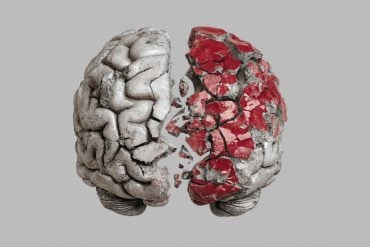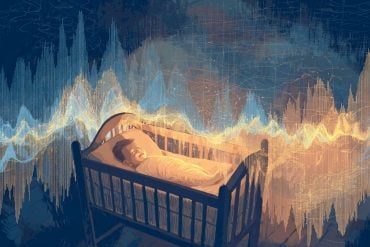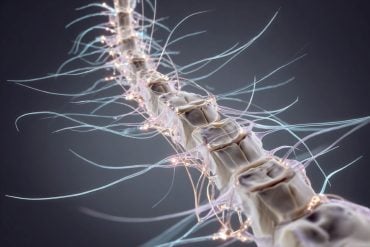Summary: New research shows that psilocin, the active metabolite of the psychedelic psilocybin, may reduce alcohol consumption by calming stress-sensitive neurons in the central amygdala. In female mice exposed to long-term alcohol use, psilocin dampened the hyperactivity of these neurons, temporarily reducing drinking.
Similar effects occurred in mice with milder alcohol exposure, aligning with clinical observations that psychedelics can improve emotional regulation across multiple disorders. The work offers an important mechanistic window into how psychedelic-based treatments may benefit alcohol use disorders and stress-related conditions.
Key Facts
- Stress Circuit Target: Psilocin dampens central amygdala neuron activity associated with alcohol use, anxiety, and depression.
- Reduced Drinking: Lower neuronal activity correlated with reduced alcohol consumption during psilocin exposure.
- Mechanistic Insight: Findings support emerging evidence that psychedelics improve emotional regulation across psychiatric disorders.
Source: SfN
A psychedelic found in mushrooms is emerging as a potential treatment for alcohol use disorders.
This possibility is due to a compound the body converts the psychedelic into called psilocin, but psilocin’s mechanisms remain unclear.
Researchers, led by Sarah Magee and Melissa Herman at University of North Carolina at Chapel Hill, explored whether psilocin targets neurons in the central amygdala involved in emotional processing and stress to alter alcohol use in their Journal of Neuroscience paper.
Herman emphasizes that preclinical work like this is necessary for filling gaps in knowledge about drug mechanisms, especially in the field of psychedelic research.
Focusing on female mice because they drink more alcohol than male mice, the researchers discovered that psilocin dampened the activity of these neurons following long-term alcohol exposure.
This decrease in activity was associated with less alcohol drinking during drug exposure, though drinking was restored in later sessions.
These observations also occurred in mice with less severe alcohol exposure, supporting clinical work showing that psychedelics may help improve issues with emotional processing and stress across a range of psychiatric disorders.
According to the researchers, these findings may shape interpretations of clinical studies on psychedelic treatments.
Elaborating on their findings, says Herman, “It makes sense that dampening this neuron population reduces drinking because increased activity in these neurons is associated with alcohol use disorders.
“These neurons also play a role in depression and anxiety, which psychedelics are also showing promise at treating, so our work provides some mechanistic insight in those contexts, too.”
Key Questions Answered:
A: Psilocin dampened hyperactive neurons after long-term alcohol exposure, which briefly reduced drinking in female mice.
A: Yes, similar effects appeared in mice with less severe alcohol exposure.
A: The findings give mechanistic insight into how psychedelics may help regulate stress circuits across multiple psychiatric conditions.
About those AUD and psychopharmacology research news
Author: SfN Media
Source: SfN
Contact: SfN Media – SfN
Image: The image is credited to Neuroscience News
Original Research: Closed access.
“The Psychedelic Psilocin Suppresses Activity of Central Amygdala Corticotropin Releasing Factor Receptor 1 Neurons and Decreases Ethanol Drinking in Female Mice” by Sarah Magee et al. Journal of Neuroscience
Abstract
The Psychedelic Psilocin Suppresses Activity of Central Amygdala Corticotropin Releasing Factor Receptor 1 Neurons and Decreases Ethanol Drinking in Female Mice
Alcohol use disorder (AUD) is a highly prevalent disorder with limited therapeutic options.
The central amygdala (CeA) is a critical brain region as dysregulation within the CeA and the corticotropin-releasing factor (CRF) system are associated with AUD pathology. CeA CRF1 receptors regulate alcohol drinking and have served as a therapeutic target in alcohol treatment. One emerging potential therapeutic for AUD is psilocybin.
Psilocybin has been shown to decrease drinking in some clinical studies however the effects are variable and mechanisms underlying these effects are poorly understood.
Psilocybin can engage many brain regions, including the CeA, and may produce therapeutic effects on drinking through interactions with CeA CRF1 neurons.
The current study explores the effects of psilocin, the active metabolite of psilocybin, on voluntary ethanol drinking and CeA CRF1 activity to understand the potential mechanisms underlying the therapeutic effects of psilocin.
Psilocin acutely decreased ethanol consumption in mice exposed to two different models of chronic ethanol exposure without producing changes in locomotor behavior.
Psilocin increased CeA activation and decreased relative CRF1 activation in CeA sub-regions from ethanol-naïve female CRF1:GFP mice. These results were also observed in chronic ethanol-exposed mice at 24hr and 72hr withdrawal timepoints.
Psilocin increased corticosterone at 24hr withdrawal but not at 72hr withdrawal. Collectively, these results demonstrate that psilocin engages CeA circuitry and decreases relative CRF1 activation, in parallel with acute reductions in drinking.
These results contribute to our understanding of the mechanisms underlying the actions of psilocin and inform the interpretation of therapeutic effects in clinical studies.







